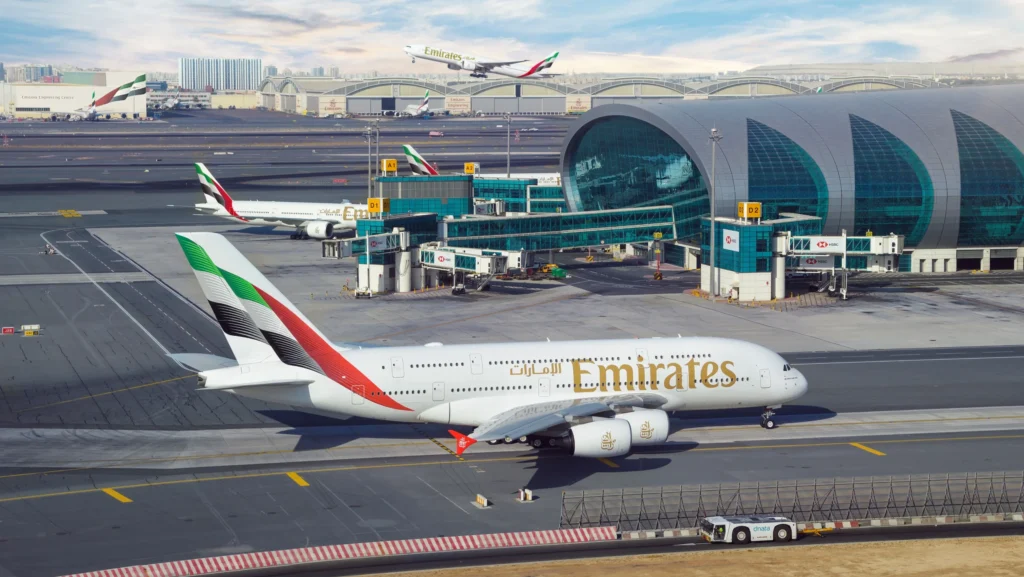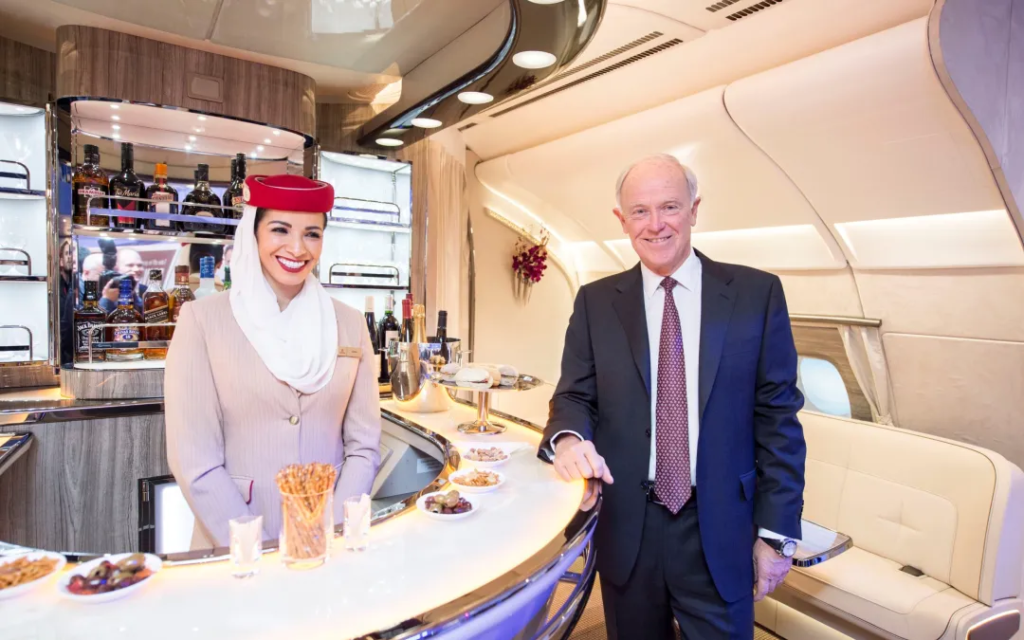DUBAI- UAE’s flag carrier Emirates Airline (EK) president Sir Tim Clark has voiced concerns about an economic reset comparable to the 2008 financial crisis, amid recent turbulence in international markets.
With 50 years of airline industry experience and over two decades leading the world’s largest international carrier, Clark’s assessment highlights challenges facing global carriers while noting Emirates’ diverse network may provide resilience against market volatility.

Emirates President on Economy Crisis
Sir Tim Clark’s warning about troubled economic times came during a CNBC interview, where he specifically pointed to difficulties in the U.S. domestic market for major carriers.
The scope of change happening globally, according to Clark, “involves a measure of reset to a level that the global economy probably hasn’t seen since perhaps the financial crisis of 2008-09.”
Investor concerns stem largely from new tariffs on goods entering the United States and their potential impact on global trade. Clark cautioned that the U.S. administration’s reset efforts would take considerable time, potentially creating “troubled waters” for the industry.
Despite these challenges, Clark remains optimistic about certain aspects of the market. “Long-haul travel remains very strong and robust,” he noted, with Emirates seeing substantial bookings through the remainder of the year and into early next year. This resilience in travel demand has been a consistent pattern following previous downturns.

Emirates’ Diversification Strategy
Drawing on his 40-year tenure at Emirates, which began when the airline was merely a startup in 1985, Clark explained how the carrier’s business model provides advantages during economic uncertainty. Since becoming president in 2003, he has built Emirates into an aviation powerhouse with more than 250 widebody aircraft.
“Business models like Emirates – given the international scope of what it does and the strength of what it does – we’ll be able to ride this particular wave and get through it as well as it has done in the past,” Clark stated.
The airline serves over 130 destinations across six continents from its Dubai hub, providing a geographical hedge against market-specific downturns, Skift reported.
This diversification strategy contrasts with carriers heavily dependent on specific markets such as the North Atlantic. According to Clark, “We’re very diverse in the countries that we serve, all of which react in different ways to what’s going to happen now. That gives us a fairly solid base… because when one takes a dip we replace it with something else.”

Mixed Signals Across Major Airlines
Other airline executives have offered varying assessments of current market conditions. Air France-KLM (AF-KL) CEO Ben Smith indicated in late March that while the situation was concerning, they weren’t yet seeing material changes in capacity.
Virgin Atlantic’s (VS) CFO Oli Byers provided a more cautious view, noting recent signals of slowing U.S. demand, which he attributed to “general consumer uncertainty.”
The post-crisis recovery pattern provides some hope. Clark emphasized that following the 2008-09 financial crisis, “the return of demand was very robust. Much stronger than it was before the crisis.”
However, he acknowledged it was “early days to see what effect the resetting of the terms of trade will have on the global economy and ergo discretionary demand for leisure travel.”
Stay tuned with us. Further, follow us on social media for the latest updates.
Join us on Telegram Group for the Latest Aviation Updates. Subsequently, follow us on Google News

